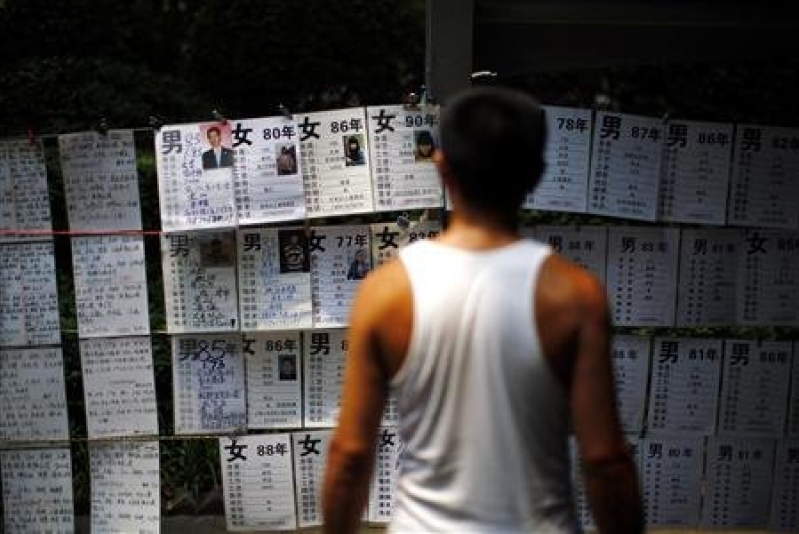

Editor's note: The names of some interviewees in this article have been changed to protect their privacy.
---
After years of being badgered by her parents to get married, 26-year-old Zhang Yu finally had enough.
"I have decided never to marry or have a child," said Zhang, a university graduate from Changsha, Hunan province, who moved to Shanghai earlier this year to escape her family and jumpstart her career.
Zhang's vow to never marry is rare in a country where educated women are constantly told by their families, friends and the state media that they will be lonely and miserable if they do not quickly find a husband, according to CNN.
In China, single women older than 30 -- and even in their mid-to-late 20s -- can find themselves branded as sheng nu, or "leftover women", and are often under intense pressure to get married.
In a different world, China's gender ratio might favor women; but because of strong social tradition, the opposite is true. It has long been believed here that women must marry up in terms of income, education and age. And as Chinese women climb the social ladder -- becoming more educated and earning higher salaries -- the pool of viable suitors is shrinking fast, according to chinadaily.com.
The most highly-educated women often end up without partners altogether, as more and more professionals say they just can't find men who make the grade.
What's more, marriage at a young age has long been the norm in China. In 1950, the average age for urban Chinese women to marry for the first time was just under 20. By the 1980s it was 25. Now it's about 27, according to chinadaily.com.
Lan Fang, a 32-year-old client relations manager for a financial company in Shanghai, embraces her single lifestyle. She enjoys a relatively high income of 20,000 RMB a month (around US$3,200) and often goes out with friends to dinners, movies and concerts.
"Where I grew up in Nanjing, I saw so many couples getting into big fights, and most of them seemed unhappy. Plus, so many men have affairs," Lan said, according to CNN. "My life in Shanghai now is very rich, why would I want to change it?"
Lan is in the minority, but her attitude reflects the reality that marriage in today's China does little to protect women's rights. For example, a Chinese woman has almost no recourse if her husband abuses her. Official statistics show that a quarter of women have experienced intimate partner violence, but feminist activists say that number is an underestimate, CNN reports.
The term "shengnu" -- directly translated as "leftover women" -- was coined to refer to professional women who have not married by their late 20s.
"Chinese people often think males should be higher in a relationship in every sense, including height, age, education and salary," Ni Lin, who hosts a popular match-making television show in Shanghai, told Reuters. "This leads to a phenomenon in which A-grade men marry B-grade women, B-grade men marry C-grade women and C-grade men marry D-grade women. Only A-grade women and D-grade men can't find partners."






